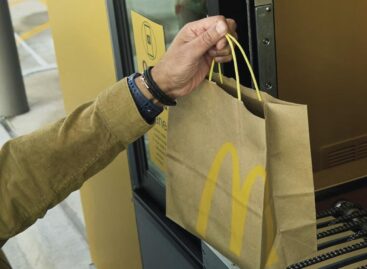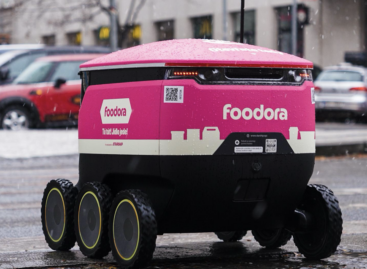McDonald’s video shows what happens to the waste left on the trays
The Hungarian McDonald’s has been selectively collecting waste in its domestic units for more than a quarter of a century. The employees of the restaurants sort the packaging and leftover food left on the trays into several groups, as well as the waste generated in the kitchen, which the restaurant chain gives to its partners for recycling. Meki is showing how this happens in practice in a video made on the occasion of World Environment Day.
Hungary’s McDonald’s was one of the first in the Hungarian hospitality industry to start selective waste collection in its restaurants as early as 1998. Thanks to the continuous development of the sorting system, the network currently recycles nearly 80% of all waste generated in the restaurant chain.
Employees in restaurants separate mixed plastic waste, paper and paper-based waste, metal, as well as waste contaminated with food residues and food scraps. The packaging waste left on the trays by the guests, which is suitable for this purpose, is mostly recycled in its material, and a smaller part is reused as an energy source.
In addition to the waste from the trays, biodiesel is produced from nearly 600 tons of used cooking oil produced in the kitchens each year. In addition, the sludge waste produced during the cleaning of the grease traps, as well as the food waste and food scraps, are used in a biogas plant to produce electricity and thermal energy.
Related news
Hello, who ordered the hamburger?
🎧 Hallgasd a cikket: Lejátszás Szünet Folytatás Leállítás Nyelv: Auto…
Read more >McDonald’s Christmas commercial sparks controversy
🎧 Hallgasd a cikket: Lejátszás Szünet Folytatás Leállítás Nyelv: Auto…
Read more >Already a reality in Prague, Budapest next? – foodora tested robot delivery
🎧 Hallgasd a cikket: Lejátszás Szünet Folytatás Leállítás Nyelv: Auto…
Read more >Related news
(HU) Átadták a SIRHA Budapest 2026 Innovációs Termékverseny díjait
🎧 Hallgasd a cikket: Lejátszás Szünet Folytatás Leállítás Nyelv: Auto…
Read more >How does the forint exchange rate affect consumer prices?
🎧 Hallgasd a cikket: Lejátszás Szünet Folytatás Leállítás Nyelv: Auto…
Read more >HELL CITY has arrived, led by Michele Morrone
🎧 Hallgasd a cikket: Lejátszás Szünet Folytatás Leállítás Nyelv: Auto…
Read more >









